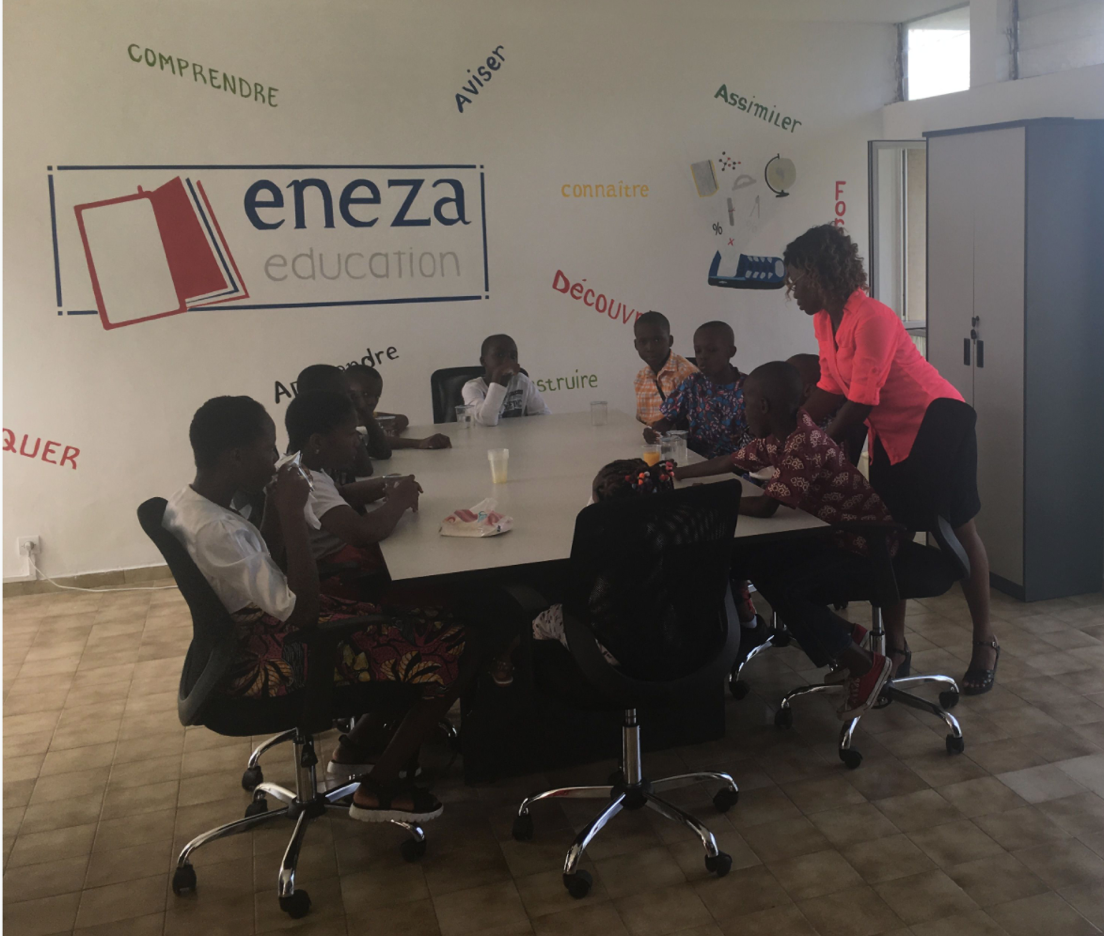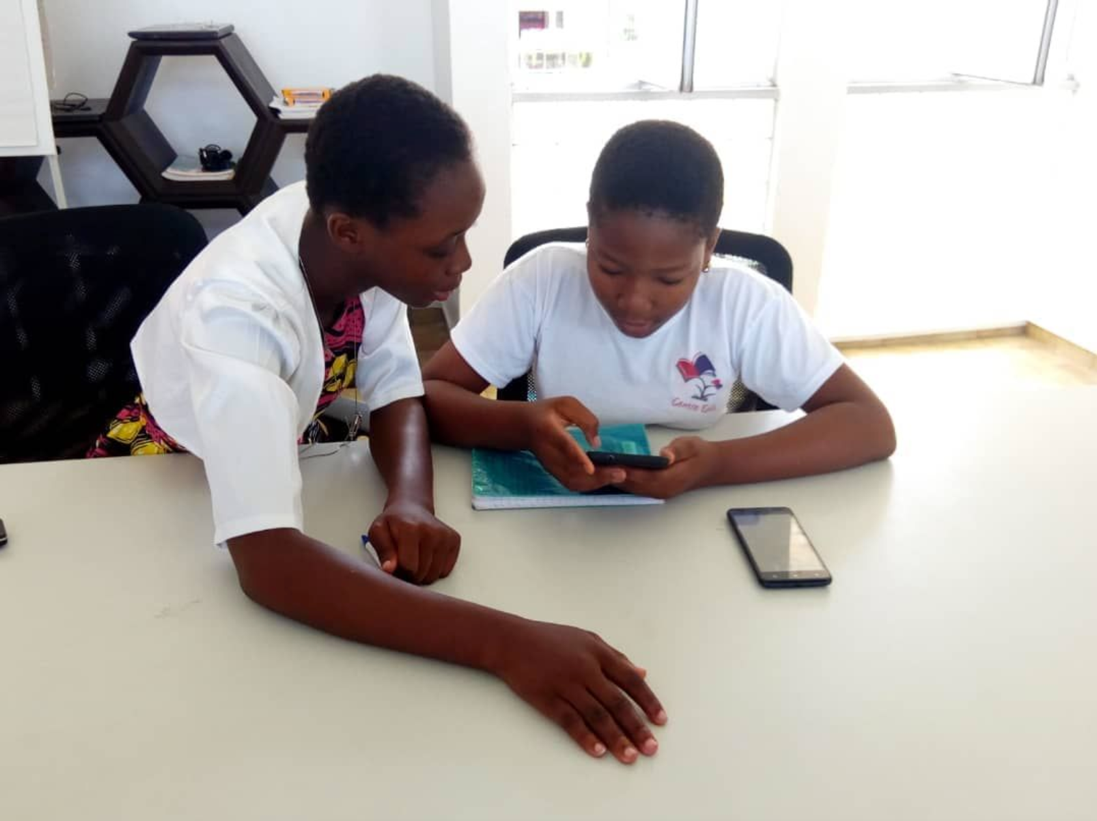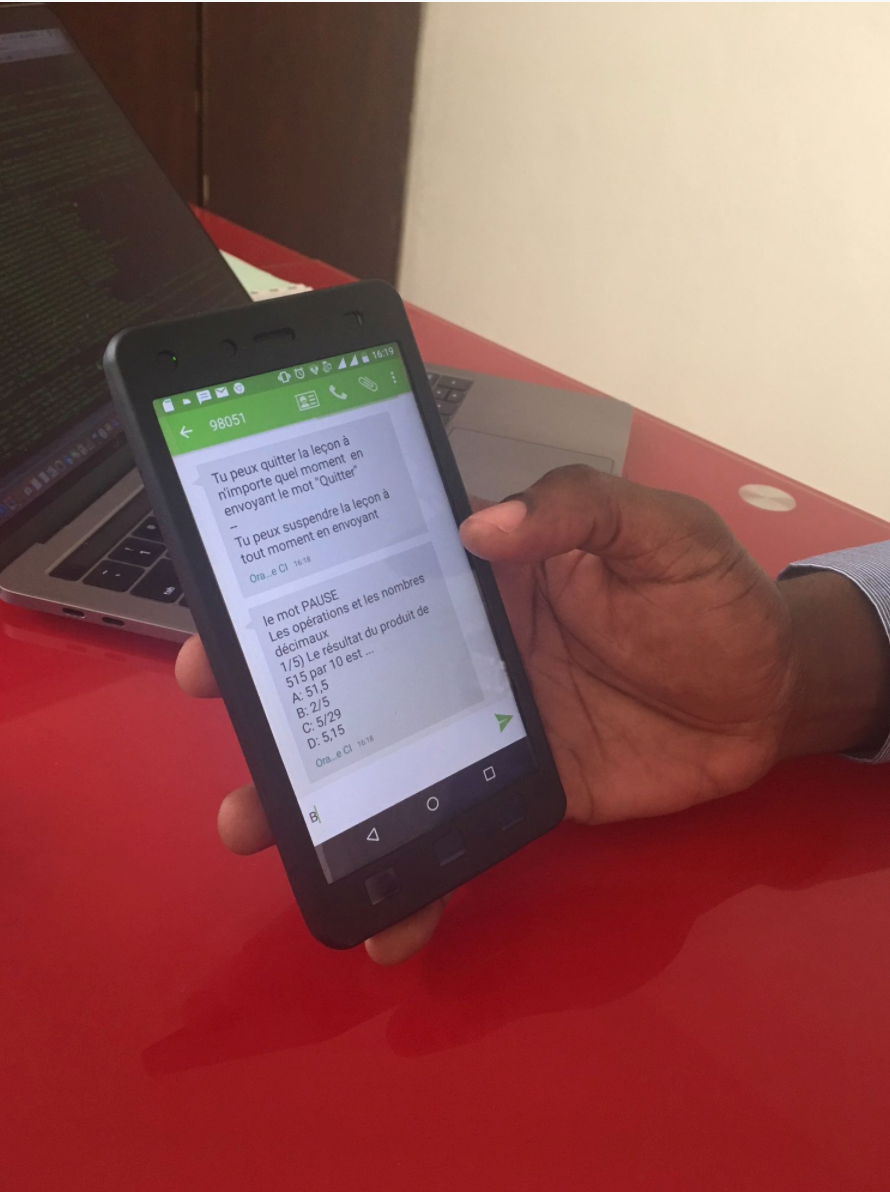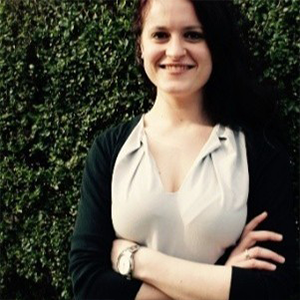This blog is the second in the series which will focus on the role of technology in fighting COVID-19. We will highlight how start-ups in developing markets are using technology creatively to fight the pandemic.
Eneza Education offers a subscription service for educational content to children in primary and secondary schools in Kenya, Ghana and Côte d’Ivoire. Developed in-house and aligned with the national curriculum, students can access lessons and assessments on any mobile phone via SMS or USSD with a daily, weekly or monthly subscription.
Only 63 per cent of children in Côte d’Ivoire complete primary school, compared with 72.6 per cent in Africa overall. Those who complete primary school have lower literacy and math skills compared with students in other Francophone African countries. Côte d’Ivoire has a mathematics score of 476, compared to 594 in Burundi.

After launching its service in September 2018, Eneza Education received a grant from the GSMA Ecosystem Accelerator Innovation Fund in November 2018 to expand the solution in Côte d’Ivoire, through improvements to platform quality, raising awareness through a rewards system, as well as content creation and an IVR channel.
In June 2018, Eneza Education (iEduk) signed a contract with Orange Group and signed a revenue-sharing agreement with Orange Cote d’Ivoire. Orange has opened its SMS and billing APIs to allow iEduk users to access and pay for content using prepaid mobile phone credit.
By the end of the GSMA grant in March 2020, Eneza had increased the number of users on the platform to 27,545. The start-up has successfully integrated literary education with IVR and improved the service through distance learning via SMS.

In the face of the COVID-19 outbreak, the Eneza Education team is taking further action to support the education of primary and secondary school students in Côte d’Ivoire. We spoke to Christelle Kouame from Eneza Education in a recent online panel discussion, hosted by Max Cuvellier, the Head of Mobile for Development. This blog incorporates responses from that panel session and other discussions with Eneza Education.
The GSMA: How has COVID-19 impacted your business activities?
Christelle: The COVID-19 crisis has impacted our customer base. We have had more than a 400 per cent increase in visitors due to a free trial period as our response to the situation. Regarding our marketing position, it has increased brand awareness and showed the importance of our product and content to potential investors. As for our business development, it helped us to quickly contract and implement a project with Moov (an MNO in Cote d’Ivoire).
The GSMA: What has been the impact on your customers? How have their needs changed?
Christelle: We have seen significant progress, from an average of 281 daily students before COVID-19, to more than 12,000 per day. Our learners have been negatively affected by the crisis, as they only receive 60 per cent of their progress in the national curriculum. Parents report that loss of income means that they cannot afford to subscribe to the service. At the beginning of the crisis, some parents were not interested in paying for Eneza’s solution. However, after one month the students used the platform to progress in the programme – i.e., they use the platform to complete new lessons, not just revise old lessons. We have noticed that parents are now more involved in their child’s learning. Most parents are paying for their children to continue the exam preparation classes as they continue to study from home. Students initially used the platform to supplement normal courses and to reinforce their learning and focus on weak areas . But now they use the platform as a substitute for the normal courses. They also use the platform to prepare for exams – so the pandemic has changed the way they are using our platform. Since the lockdown, we also noticed that parents took part in their children’s learning because parents are at home too.

The GSMA: Have you considered any new partners that you can strategically collaborate with in this crisis?
Christelle: Organisations such as UNICEF, Save the Children are some of the new partners we can strategically collaborate with during this crisis. This pandemic helped us to swiftly contract new partnerships with two MNOs, namely Moov and MTN, who were very reactive in this period. MNOs are a strategic partner to reach a greater audience because they can promote your service in different ways. The reason why it’s beneficial to work with them is that they can push our SMS and boost your service.
We worked with the Ministry of Education in Côte d’Ivoire to approve all educational content. We also have a new partnership with the National Association of Parents. We share feedback with parents because we find that parental supervision encourages regular usage of the platform. We have started sending regular reports and daily reminders to the parents so that they remember to encourage their children to use the platform.
The GSMA: What do you see as the long-term effects on your service?
Christelle: We noticed that after the initial free period, only 20 per cent of users continue to use the platform. It’s very important to note – many users take advantage of the free service because of the current crisis. We believe it would be not the same case were it not for COVID-19. After this crisis we believe that parents will be more involved in their child’s education. Right now, several parents in Côte d’Ivoire do not know the normal curriculum for each subject. When school ends in the middle of the year, they don’t know which subjects are next. It’s very difficult to support children if you don’t know the content of the programme. I think this crisis will change many things in the mindset of the parents.
The GSMA: What do you think is the way to help get successful solutions, in particular EdTech solutions, to replicate quickly, to more markets so they can reach more people?
Christelle: To ensure that we create quality content, we work with teachers and the Ministry of Education because they update the programme every year. To reach more students, we provide a variety of content for schooltime, exam periods and holidays. Therefore, you would need to work with each government and their Ministry of Education to replicate this solution in another market.
The GSMA: What advice would you give to start-ups in your position?
Christelle: Start-ups should adapt their offering to suit the pandemic. They need to take time to make the right choices, despite the urgency of the crisis. Start-ups should discern the best opportunity and do everything to be in the right place at the right time.
Start-ups should also be passionate. This is needed to improve education in the world. We really need patience too, as it takes time to improve education. You also have to look for more opportunities to promote your service and find a way to inspire students to learn.
The Ecosystem Accelerator programme is supported by the UK Department for International Development (DFID), the Australian Government, the GSMA and its members.




